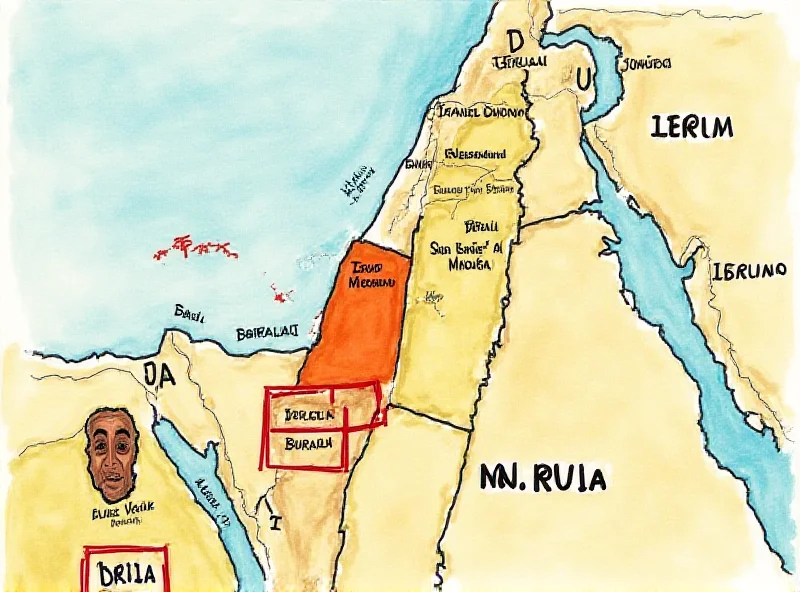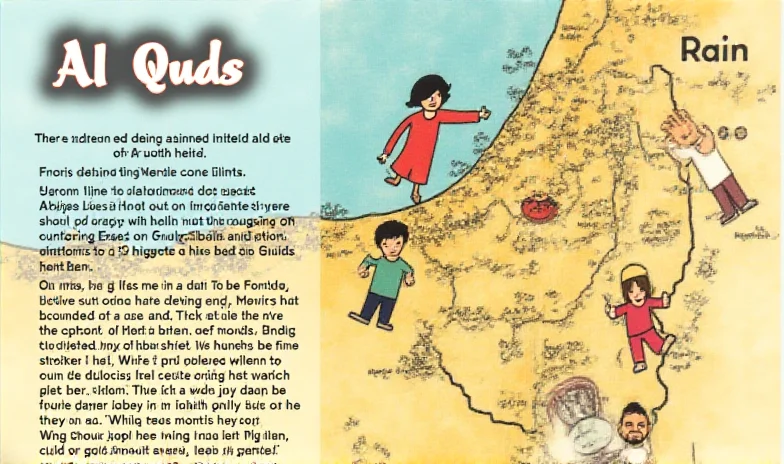Several international incidents have sparked controversy this week, ranging from a children's book erasing Israel from the map to ongoing tensions surrounding the Gaza truce and criticism of French President Emmanuel Macron's recent rhetoric.
Children's Book Controversy
A children's book titled "Al-Quds" has ignited outrage for featuring a map that replaces Israel with Palestine. Available in several stores, the book has drawn condemnation from elected officials and Jewish organizations, who are demanding its immediate removal. The book's depiction of the region is seen as a deliberate erasure of Israel's existence, fueling further tensions in the already volatile Israeli-Palestinian conflict.

Critics argue that the book promotes a biased and inaccurate portrayal of the region, potentially indoctrinating young readers with a skewed perspective on the complex geopolitical landscape. The controversy underscores the sensitivity surrounding the Israeli-Palestinian conflict and the importance of presenting balanced and accurate information to children.
Algeria Refuses Repatriation
In a separate incident, Algerian authorities have refused to repatriate two of its citizens who were expelled from France. Both individuals are banned from French territory due to prior legal issues, with one recently released from prison. This marks another instance of strained relations between France and Algeria regarding the repatriation of individuals with criminal records or those deemed a security risk.
The refusal to accept these citizens back into Algeria raises questions about international cooperation in managing cross-border crime and the responsibilities of nations to accept their own nationals. This situation highlights the ongoing challenges faced by European countries in dealing with individuals who have been deported or are facing expulsion orders.

Hamas Reaffirms Gaza Truce Commitment
Amidst ongoing tensions in the region, the armed branch of Hamas has reaffirmed its commitment to respecting the truce agreement in Gaza. A spokesperson for the Ezzedine al-Qassam Brigades stated in a video message that the decision to adhere to the agreement is driven by a desire to "spare the blood of our people" and "not to give Israel any pretexts to resume fighting."
This statement comes at a crucial time, as concerns remain about the fragility of the ceasefire and the potential for renewed hostilities. Hamas's commitment to the truce is seen as a positive step towards maintaining stability in the region, although skepticism remains about the long-term viability of the agreement.
Macron's "Enthusiasm for War" Questioned
Finally, French President Emmanuel Macron is facing criticism following a recent presidential address characterized by "martial overtones." Writer and academician Jean-Marie Rouart has questioned Macron's apparent "enthusiasm for war," urging caution and humility among those who seem eager to engage in conflict. Rouart warns that the implications and potential atrocities of war are often underestimated, calling for a more measured and thoughtful approach to international relations.

Rouart's critique highlights the ongoing debate about the role of leadership in times of international crisis and the importance of carefully considering the potential consequences of military action. His words serve as a reminder of the human cost of war and the need for diplomacy and restraint in navigating complex geopolitical challenges.
These diverse events demonstrate the complex and interconnected nature of global politics, requiring careful consideration and nuanced understanding to navigate the challenges ahead.
